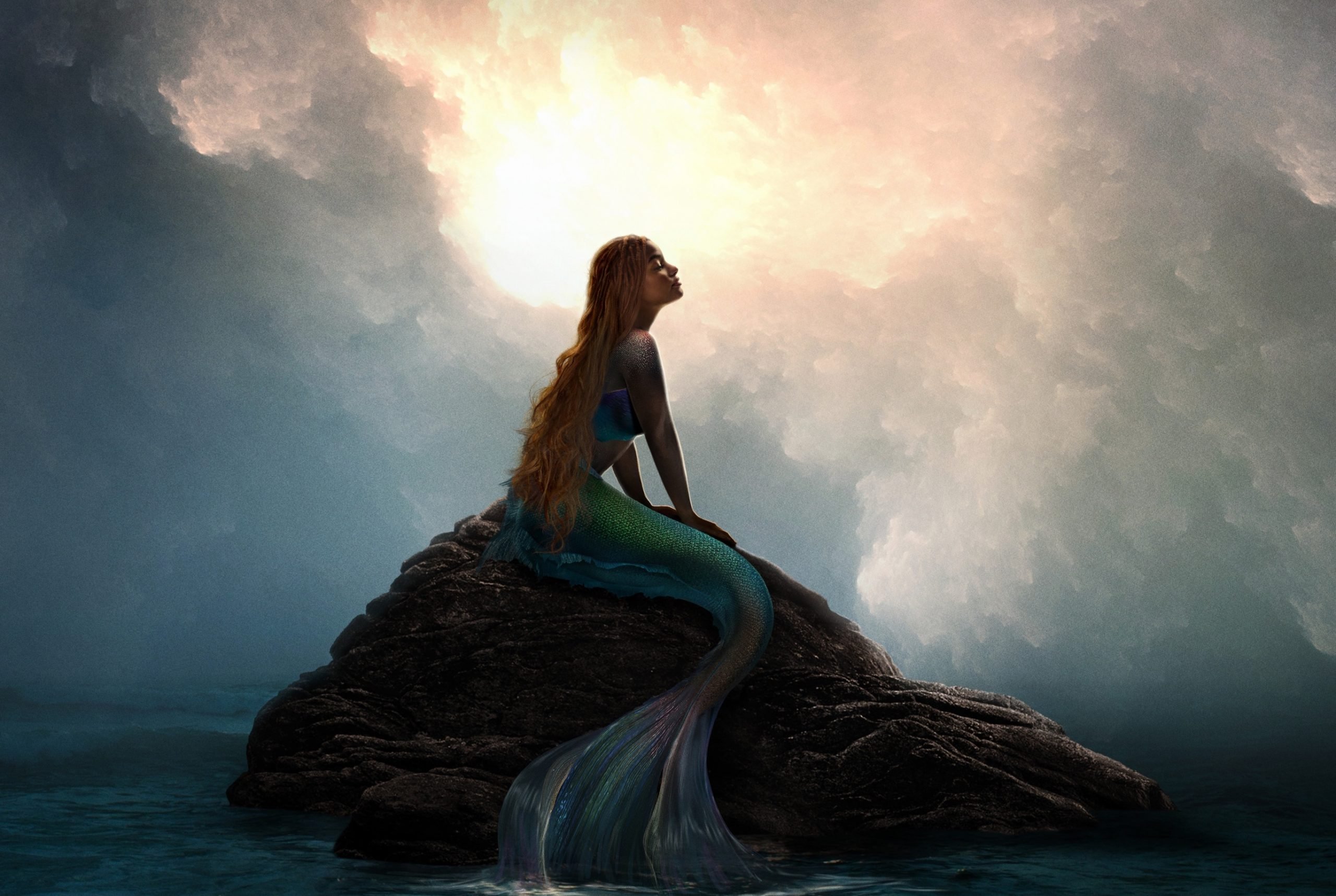If you thought that five Disney remakes released four years ago would be all that the biggest entertainment company in the world would produce, then one would be sadly mistaken. It didn’t even take COVID-19 to stop the rapacious appetite of Disney remaking their animated classics, with Mulan and Cruella released in September 2020 and May 2021, respectively. This year has already seen David Lowery’s take on Peter Pan & Wendy (released unceremoniously on Disney+) and next are the already-filmed Snow White starring Rachel Zegler and Lion King-prequel Mufasa, as well as those in development like Lilo & Stitch, Hercules, and inexplicably Moana, showing that when the classics have dried up, modern Disney movies are not safe. Quality-wise, only three have truly excelled (Cinderella, The Jungle Book, and Pete’s Dragon), while the rest range from acceptable (the aforementioned Peter Pan & Wendy) to pure nightmare fuel (Robert Zemeckis’ Pinocchio). So where does director Rob Marshall’s The Little Mermaid fit? Thankfully, the former camp.
Based on the 1989 animated classic written and directed by John Musker and Ron Clements, here adapted by David Magee, The Little Mermaid stars Halle Bailey as mermaid princess Ariel, born to King Triton (Javier Bardem) of the Seven Seas, who is fascinated by the human world above the ocean and their objects and customs. Her fascination is piqued when encountering Prince Eric (Jonah Hauer-King), saving his life, falling in love with the dashing adventurer, but knowing she can never be with him. Making a deal with the sea witch Ursula (Melissa McCarthy), Ariel trades her tail for human legs and sacrifices her heavenly siren song voice all for a chance to be with Eric, but Ursula deceives all parties and leads to a conflict between the human and mermaid worlds.
The original classic is very much that, a crowning jewel in the Disney canon that saved the company from surefire bankruptcy and ushered in the so-called “Disney Renaissance” for the next decade (credit also goes to The Great Mouse Detective and Who Framed Roger Rabbit). A question of a remake was met with the same raised eyebrows as the announcements of other Renaissance classics. This reviewer expected it to be as bad as Beauty and the Beast and The Lion King, simply because of how little room there is left to improve on the original. I maintain that the best remakes were born from original movies which don’t hold up or didn’t work all that well in the first place, having plentiful room to improve on characters and story. However, simply because of the quality of casting and some rather decent changes, this Little Mermaid succeeds in more ways than I expected.
Caveats are to be maintained. Rob Marshall continues a rather annoying trend in his movies of lighting scenes with cinematographer Dion Beebe in a drab and flat tone, most evident with the human world scenes, while the underwater scenarios suffer from excessive CGI that pales in comparison to recent aquatic adventures in Aquaman, Black Panther: Wakanda Forever, and of course Avatar: The Way of Water. Halle Bailey is left high-and-dry in sequences like “Under the Sea”, one of the most enduring songs and scenes from Disney animation, with mismatched eyelines, garish character designs for Sebastian the Crab (voiced by Daveed Diggs) and Flounder (voiced by Jacob Tremblay), and an overall lack of energy. It is fair to say that the original and this remake are doing two different things, but animation allows for a breadth of creativity to be achieved in the images and very little is truly achieved by redoing classic scenes and songs in a flat and washed-out fashion.
However, despite the murky and uneven direction on display, there is still an enduring magic in the music and lyrics originally crafted by Howard Ashman and Alan Menken. When Halle Bailey finally gets to “Part of Your World”, it brings one to tears all over again. Bailey is an exceptionally gifted singer who finds new life and emotion in a song written over 30 years ago and replayed hundreds of times to millions around the world. She even finds this in just a few extra refrains of “Under the Sea” and new song “For the First Time”, and when connected with Hauer-King’s Eric, there is a refreshing quality brought to their relationship. Ariel and Eric was never a problem before, but Hauer-King brings a soulful longing to the character, and even if Bailey’s Ariel cannot speak for a good portion after meeting Eric, we feel their youthful connection and chemistry with one another.
Magee’s script also highlights a creeping awareness that humans have of underwater creatures like mermaids, and how obsession and fear creates ripples down generational lines, leading to Ariel and Eric becoming star-crossed lovers in a way. These adjustments and reinforcements are well-received and executed, but they also reveal my primary issue with this Little Mermaid, that it would be a far better live-action movie with most songs removed, no talking sea creatures, and an emphasis on a more epic tone to the story. What we got 30 years ago in animation works perfectly there, Ashman and Menken’s Broadway-level songs coupled with accentuated and explosive animation cannot possibly translate well onto a live-action film. So why bother?
In a similar way to my personal favourite Disney remake David Lowery’s Pete’s Dragon, the filmmakers should have the courage to take what was done before and completely reconstruct the story for a new medium that obeys by completely different rules. With Prince Eric’s adjusted characterisation, the welcome change of having Triton’s daughters racially represent the “Seven Seas” (with Ariel representing the movie’s changed location to the Caribbean), and a refocusing of Ariel and Eric’s love as star-crossed, we feel as if this could be a more serious but rewardingly different affair. When the “Disney stuff” comes barrelling in, talking animals and shot-for-shot recreations of scenes, it feels wrong and out-of-place. The Little Mermaid has charm and heart, but it is buried under flat direction that avoids risks, does just enough to not give the original writers any story credit, and ends up being the same tale from 1989 and almost AN HOUR longer.
Director: Rob Marshall
Writer: David Magee (based on the script by John Musker and Ron Clements)
Starring: Halle Bailey, Jonah Hauer-King, Javier Bardem, Melissa McCarthy



